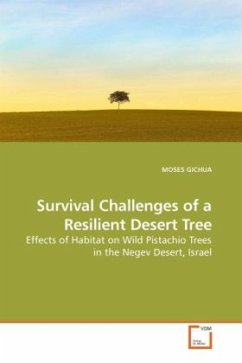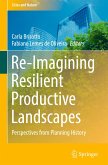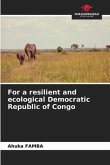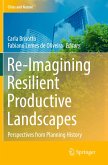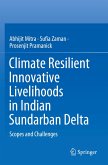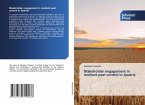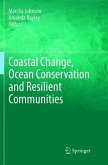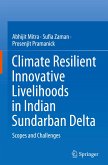In this era of global climatic change, deserts or areas threatened by desertification still remain as very fragile ecosystems. They have however received minimal attention and research input. Ecological monitoring in such areas is an important tool for conservation in order to understand the species and develop management plans to alleviate the challenges faced. In the Negev Desert of Israel, there are relatively sparsely distributed Wild Pistachio (Pistacia atlantica) trees that have survived through several millennia. This monograph is an attempt to investigate how well these trees are adapted to the desert in the face of the mounting challenges they face. Since their interaction with the habitat is important for their development, survival and reproduction, we measured its effects by observing recruitment, leaf water potential and abscission, vitality, as well as various soil parameters. The monograph could be very useful for professionals working in arid areas, universities and research institutions where training and research geared towards finding solutions to mounting environmental challenges is emphasized, or anyone interested in environmental conservation.
Bitte wählen Sie Ihr Anliegen aus.
Rechnungen
Retourenschein anfordern
Bestellstatus
Storno

